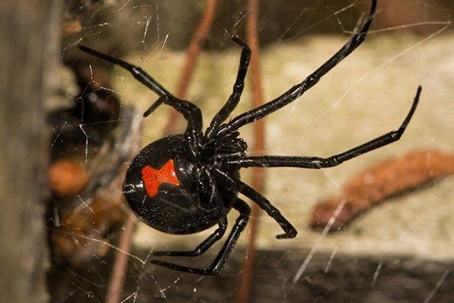What Houston Property Owners Ought To Know About Poisonous Spiders
Being afraid of spiders is pretty common, and we all understand why. With fangs, venom, and the potential to float down on their webs from the ceiling at any moment, spiders are the stuff of nightmares. However, there are only two spiders in the United States that are dangerous to humans: the black widow and the brown recluse. The more you know about these poisonous spiders and where they might be located on your property, the better chance you’ll have at avoiding a dangerous bite.
Black Widow Spiders
As you’re checking your Houston property for black widows, you’re looking for a shiny black body, usually larger than a dime. They’ll have a very round abdomen area with the famous red marking on it. This marking is a slightly darker red than you’d probably picture in your mind, so look carefully. It will be in the shape of an hourglass for some species and a dot for others.
You’re likely to find these spiders under items in the yard. They’ll set up shop under benches or rocks, and deep within shaded brush areas. If you spot them in your home, it’ll be in a low-traffic, low-light area, and it’s almost always an accident on their part as black widows much prefer to be outdoors.
One thing you need to understand about black widow bites is how serious they can be. You may think, “Well, it’s Houston. We have great doctors, and it’ll never happen to me anyways.” Believe me, that’s a dangerous train of thought and can result in a trip to the hospital if your property is plagued by these venomous pests. Even though black widow bites are rare, they often result in health conditions like muscle cramps, fever, nausea, intense sweating, seizures, and unconsciousness. While these bites are rarely fatal, they always require immediate medical attention. Since these symptoms sometimes are masked as another illness, if there is any chance you think you may have been bitten by a black widow, you need to seek medical attention right away.
Brown Recluse Spiders
The brown recluse, on the other hand, is quite a bit larger, closer to the size of a quarter. They’re often tan with a dark brown mark on the back, typically shaped like a violin. This brown color creates confusion between a brown recluse and the common wolf spider (which doesn’t carry venom). With a closer look, however, you can easily tell the difference between the two: wolf spiders are hairy, while brown recluse spiders are not.
If there are any on your property, you’ll usually find brown recluse spiders in holes or den-like crevices both outside and inside the home. These dens, usually filled with a tangled web, are their defense and hunting mechanisms. They will find holes in the floors and walls of your home to turn into dens to trap their prey. They love storage boxes and furniture for den-building as well.
The venomous bite of a brown recluse is different from the black widow in both the severity and the resulting symptoms. Rather than internal symptoms like cramping and fever, brown recluse bites usually cause a mild to severe form of necrosis, or cellular tissue death. This means the flesh will begin dying from the surface, causing an itching and burning sensation. You’ll find a blister in the center of the wound, which is a sure sign of the brown recluse bite. You’ll need immediate medical attention as the necrosis can cause an open wound down to the bone if not treated.
Not Worth the Risk
If you see either of these spiders in your home, remember two things: First, there isn’t much you can do on your own to eradicate them and prevent more. Second, it is not worth the health risk to allow the chance of poisonous spider activity to go unaddressed. Spotting just one of these is a solid indication that there are more, or that there will be soon. And if you don’t see any yet, that doesn’t mean you don’t already have some on the property.
If you want to use a guaranteed method of eradication or prevention contact the professionals at Modern Pest Control. With expert advice or assistance, their friendly pest technicians can keep you and your family safe from the risk of venomous spiders.

